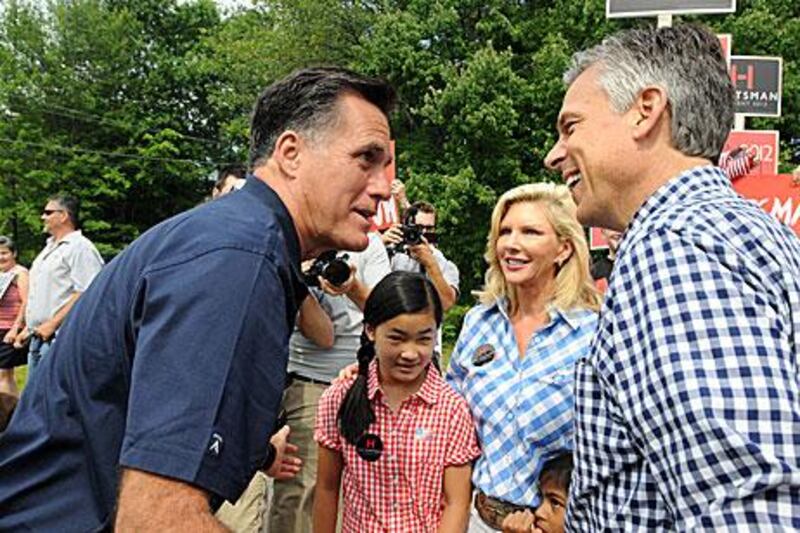CHICAGO // Most Mormons believe their religion is not well understood by Americans and many sense hostility, but a survey done as Mormonism gains political and cultural prominence shows they are optimistic that tolerance of their faith is rising.
US media have dubbed this the "Mormon moment" with two Mormons - Mitt Romney and Jon Huntsman - vying for the Republican nomination to run for US president, a hit play (The Book of Mormon), a popular cable television series (HBO's Big Love) and the best-selling Twilight vampire books written by a Mormon.
"We wanted to find out how Mormons themselves are responding to the Mormon moment," said Greg Smith, a chief researcher at the Pew Research Center's Forum on Religion & Public Life, which surveyed 1,019 adult Mormons in October and November.
"We find a mixed picture," he said. "On the one hand, Mormons in many ways see themselves as misunderstood. They think they are discriminated against, that they are not fully accepted by other Americans."
Mormons make up nearly 2 per cent of the US population of about 313 million people.
Six in 10 Mormons in the survey said they believe Americans know little or nothing about Mormonism. Half said Mormons face a lot of discrimination and two-thirds said people do not think of Mormonism as part of mainstream American society.
"On the other hand, the survey also shows Mormons in many ways are optimistic. They are happy with their lives and with their communities and (63 per cent of those asked) think acceptance of Mormonism is on the rise," Mr Smith said.
So far during the Republican campaign, the focus has been less on Mr Romney's participation in The Church of Jesus Christ of Latter-day Saints, the formal name for Mormonism, and more on the millionaire's past as a Bain Capital executive buying and restructuring companies and his time as governor of Massachusetts.
That could change in the January 21 South Carolina Republican primary election in which evangelical Protestants are expected to form a large voting bloc. Some evangelicals harbour mistrust for fast-growing Mormonism and its more exotic beliefs.
The Pew report said while a substantial majority of the world's 14 million Mormons view themselves as Christians, some non-Mormons view them as a cult based on the belief in living apostles and prophets, two additional books of scripture besides the Bible and other tenets.
Last year, a Pew survey concluded Mr Romney's candidacy could face resistance in the Republican primaries from evangelical voters, although they would support him over President Barack Obama, a Democrat, in this November's general election.
Fifteen per cent of evangelical Republicans have said they are less likely to vote for Mr Romney because of his religion.
In contrast, 56 per cent of Mormons in the survey said they believe the United States is ready to elect a Mormon president. Eighty-six per cent of Mormon voters, including some Democrats, had a favourable view of Mr Romney, according to the survey, which had a margin of error of 4.5 percentage points.
Despite their differences, Mormons and evangelicals do have things in common, Mr Smith said: they are ideologically conservative, a majority are Republican or lean Republican, they tend to attend church and pray regularly, and religion is often important in their lives.
"There's clearly a recognition on the part of the Mormon population that they face challenges related to acceptance, discrimination and the like. There are no illusions about that," Smith said.
"At the same time, they're an optimistic group that thinks that acceptance of Mormonism is on the rise and the country is ready to elect a Mormon as president."






